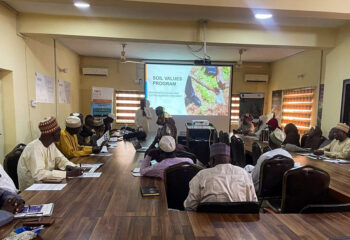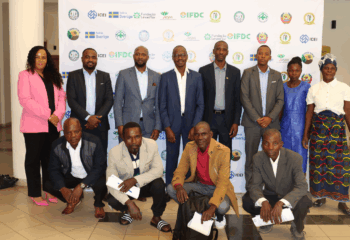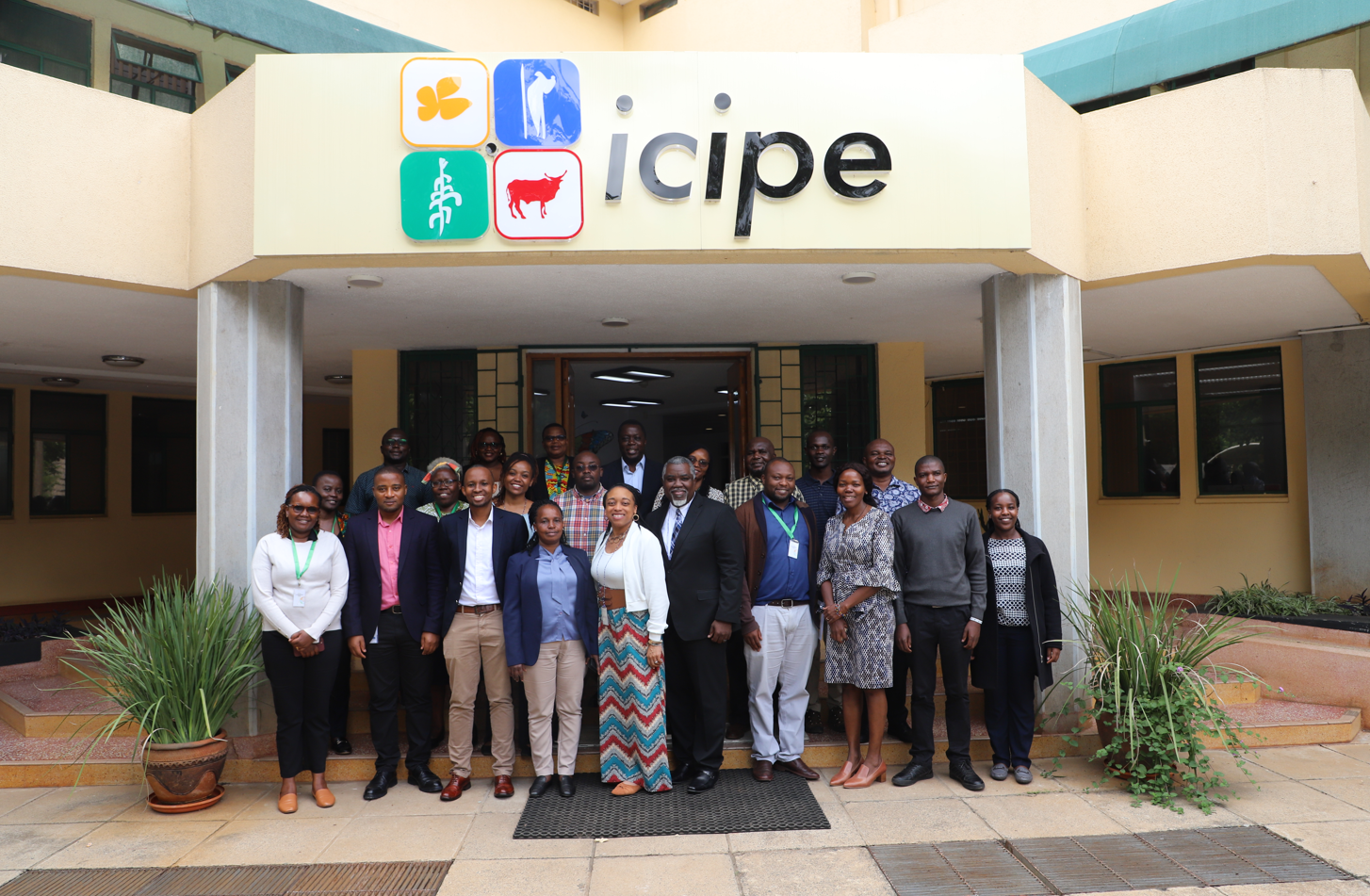My name is Saly Ouattara. I think I’m 39 years old, and life has given me 10 children: six boys and four girls. My entire life – from childhood to my marriage and until now – I have not had another job outside of farming. I have farmed for 20 years, on two parcels my in-laws have given me, a total of 1 hectare. On these two plots, I grow groundnuts, maize and cowpea, but mainly I grow cassava. For most of my life, the income generated by my poor harvests have only served to cover family expenses such as healthcare and my children’s education. But my life changed when, in 2006, IFDC and the Research Study Group for Female Action Training (GREFFA, in French) came to our village and offered to support us to better leverage our cassava.
“One hand cannot wash itself…”
In my experience, cassava producers have always worked independently – with little to show for it. Even though I was using good agricultural practices and efficient fertilizer, I myself was collecting only 15-20 bags on all my plots. IFDC and GREFFA taught us individualistic farmers, “You can increase your yields and profit, but you first need to organize – because one hand cannot wash itself.”
So that’s what we did. First, we learned to organize meetings to understand each other better. From there, we received training on the best cassava cultivation methods. We were surprised to learn that not only are there better varieties of cassava, but that we could supplement fertilizer with manure in our fields. By applying these strategies, my two plots produced a miracle: my harvest grew to 8 tons in 2012.
“The IFDC learning trip to Benin opened my eyes.”
Despite this improvement in yields, our revenues were still very modest. Worse, as there was too much cassava on the market, the prices were not very good. It was then that the idea of transforming cassava came to us. It must be said that long ago, I had the chance to travel to Bamako to attend a meeting on gender issues. It was the first time a woman of the village was invited to this kind of meeting. One night, while buying food in a modest restaurant outside of our hotel, I discovered attiéké, a popular dish in that region. I had no idea then, but this delicious food would later change my life.
The following year, I was selected by IFDC to go to Benin and learn all the secrets of cassava. This trip really opened my eyes. I discovered and learned that cassava can be made into many things such as garri, tapioca and, to my great surprise, attiéké. Back in the village, I told the other women what I learned and discussed the idea of making attiéké from our cassava.
“Working together made us more united and more interconnected.”
Thus attiéké quickly became famous in the village here and in the surrounding area. Women flocked from all over to learn the recipe, and over the last five years, I think I’ve taught at least 200 women in the village and elsewhere how to make attiéké, garri and tapioca from their cassava.
With money from selling attiéké, we set up a mutual help system to support those of us who come to give birth. By contributing 1,000 CFA francs a year, every woman can benefit from the full support of care related to childbirth. All this has helped to make us more united and has created solidarity in the village. I think this is even more important than everything else, because nothing is worth more than peace.
But now we want our product to leave the village and conquer urban markets. We know that we could sell our attiéké for three times more than here in Sikasso and Bamako. But first we must overcome the short shelf-life of our product as well as develop appealing packaging for it. That is our priority this year.
We have work to do yet, but it will be a great leap forward.
Saly’s story is part of our “Building Foundations for Female Entrepreneurs” series.



